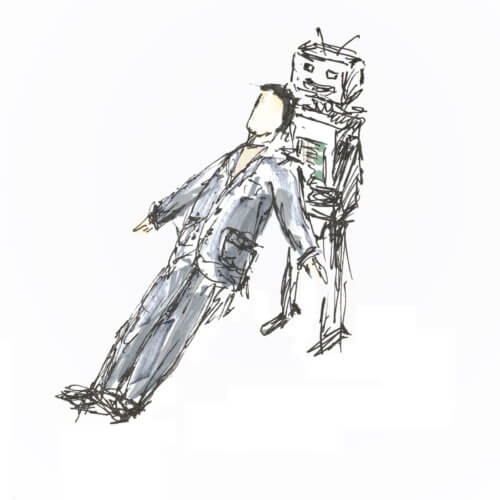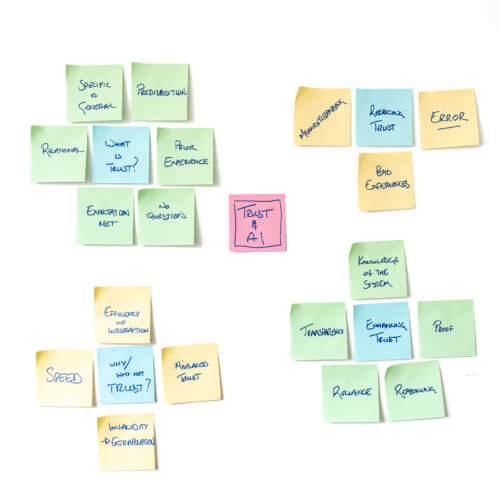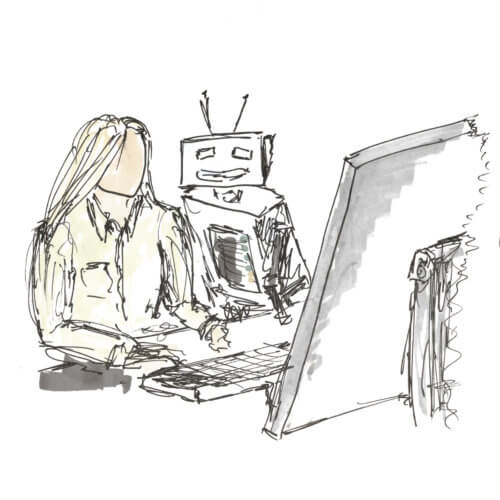Artificial intelligence is a paradigm-altering technology, but its benefits will not necessarily accrue to the organisations with the ‘best’ AI. Rather, those organisations that can best develop ways for humans and AI to work together are likely to come out on top.
Need
Trust is what underpins a lot of human interaction, and is especially important within teams. I identified that if trust is a lubricant to effective human-machine teaming, then it would be valuable to understand how to generate and support trust between humans and AI.

Solution
My team made a thorough examination of what trust is, and of what affects it. In developing our understanding of the issue, we became aware of a need to refine the objective. Trust is not always a positive: there is such a thing as too much trust, and in the context of human-AI interaction that it could be every bit as problematic as too little trust.

I adjusted the aim of the project to seek to provide interventions that would promote the ability to calibrate trust at the optimal level. We identified systematic approaches to build the ability of users already within the organisation to do this, as well as ways to ensure an enduring, long-term ability to train and educate incoming personnel. The interventions covered the full AI life-cycle, from commissioning and design through to user training and maintenance.

